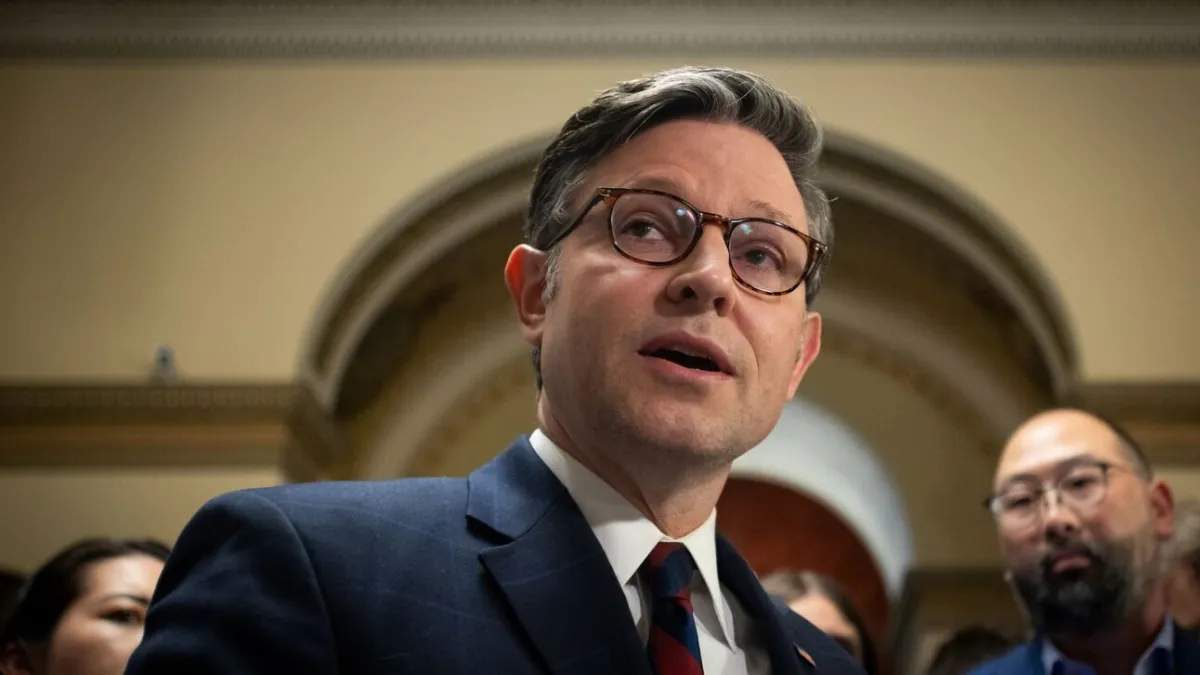
Republicans’ “big, beautiful” bill is done, but Congress still has plenty of important fiscal legislation and related items to deal with before the end of the 2025 fiscal year on September 30. Lawmakers in the Senate and the House are marking up the annual defense policy bill this week and next, for example. And they’ve got plenty more on their plates.
Funding the government to avoid a shutdown: The GOP’s big package of tax and spending cuts was a budget reconciliation bill, meaning that it had to deal with mandatory spending, taxes and/or the debt limit. It could not touch on discretionary spending — that is, annual funding for things like transportation, education or defense. Congress must still deal with those funding decisions or pass yet another stopgap spending measure before the September 30 deadline to avert a shutdown.
Neither the House nor the Senate has gotten very far, leaving little chance of passing all 12 annual appropriations bills in time. The Senate Appropriations Committee will be marking up three bill tomorrow. The House has passed one 2026 spending bill covering military construction and Veterans Affairs and House appropriators have marked up four others. But Republicans and Democrats appear to have little room to strike a bipartisan deal on spending levels or appropriations details, leaving the possibility of one or more stopgap funding bills — potentially another full-year continuing resolution — or an ugly shutdown fight.
Voting on Trump’s rescissions package: The White House has requested that Congress claw back $9.4 billion in approved funding for foreign aid and public broadcasting. Lawmakers must act on the request by July 18 or it will expire without the cuts being enacted. The House narrowly approved the package last month. The Senate is expected to take up the rescissions request next week, but Republicans in the chamber are eyeing changes to the package.
Some have expressed concerns about cuts to the global AIDS prevention program known as PEPFAR and about the potential loss of public broadcasters, especially for rural communities. “I have already made clear I don’t support the cuts to PEPFAR and child and maternal health,” Senate Appropriations Chair Susan Collins told reporters Tuesday night.
Fiscal hawks in the GOP are worried about the signal their party might send by failing to cut the relatively small amount of funding at stake. “If the Republicans in the United States Senate do not pass the rescissions package after all the rhetoric about reducing spending, then they should hide their head in a bag,” Sen. John Kennedy of Louisiana told reporters. “And I think the White House will provide the bag.”
Mapping out more budget reconciliation bills: Republicans are already talking about two more rounds of budget reconciliation and the cuts they might include. “We’ve been planning a second reconciliation bill for the fall attached to the next fiscal year, and then potentially one in the spring,” House Speaker Mike Johnson told Fox News Sunday. “That’s my plan. Three reconciliation bills before this Congress is over. I think we can do that.”
Key Republicans support the idea, and party leaders reportedly used the possibility of future reconciliation packages containing additional spending cuts and other Republican priorities to sway holdouts on the last big bill.
Republican Sen. Ron Johnson of Wisconsin told reporters that congressional leaders and the White House promised him another shot at ending the Affordable Care Act’s 90% federal cost share for new enrollees in states that expanded Medicaid — a change that would cut an estimated $313 billion in spending but could lead to widespread coverage losses.
“Senior Republicans on Capitol Hill and in the White House, meanwhile, continue to deny they made any side deals as a condition of winning over holdouts,” Politico notes.